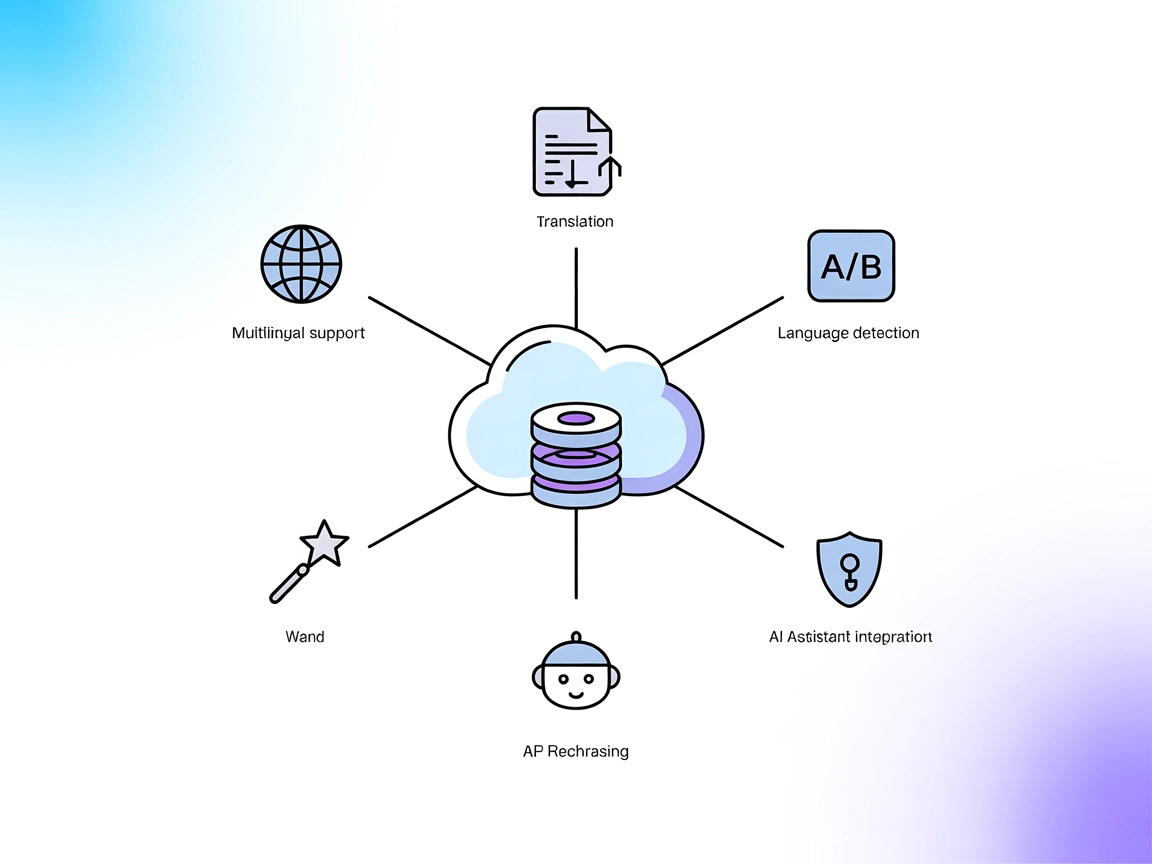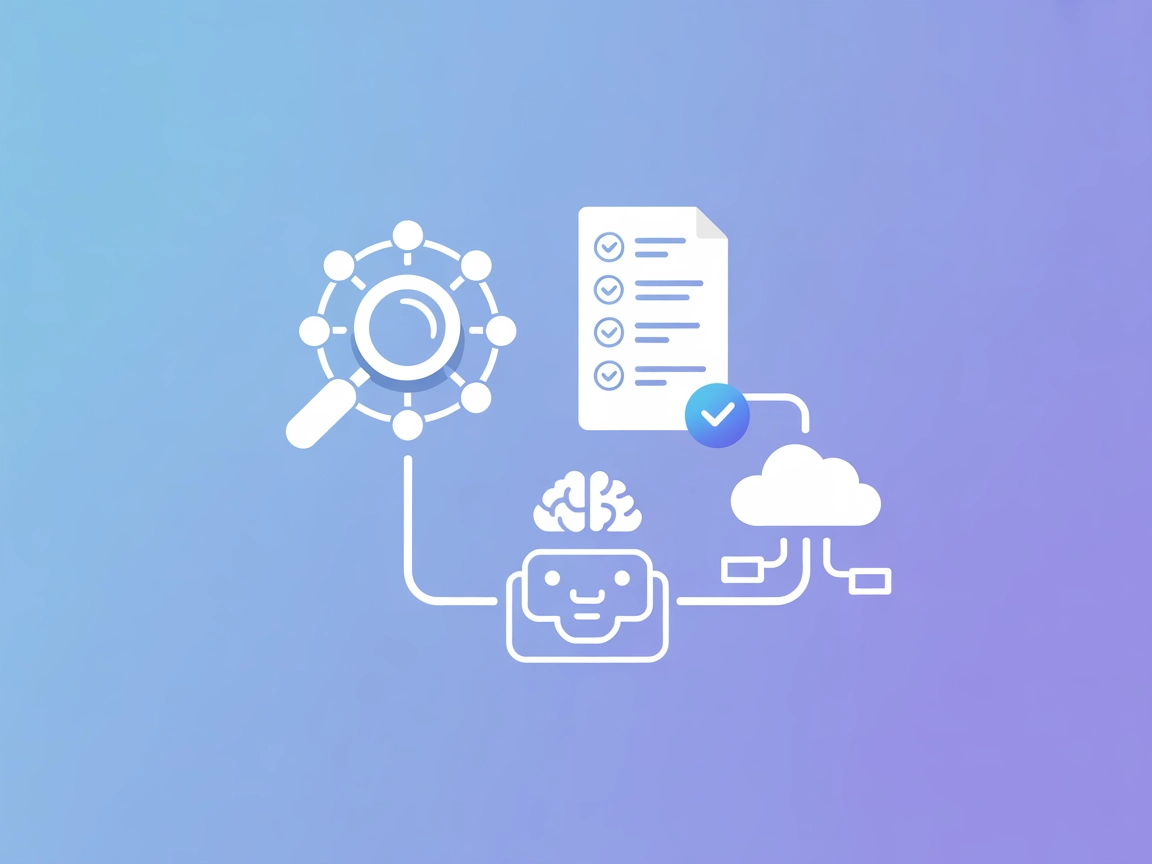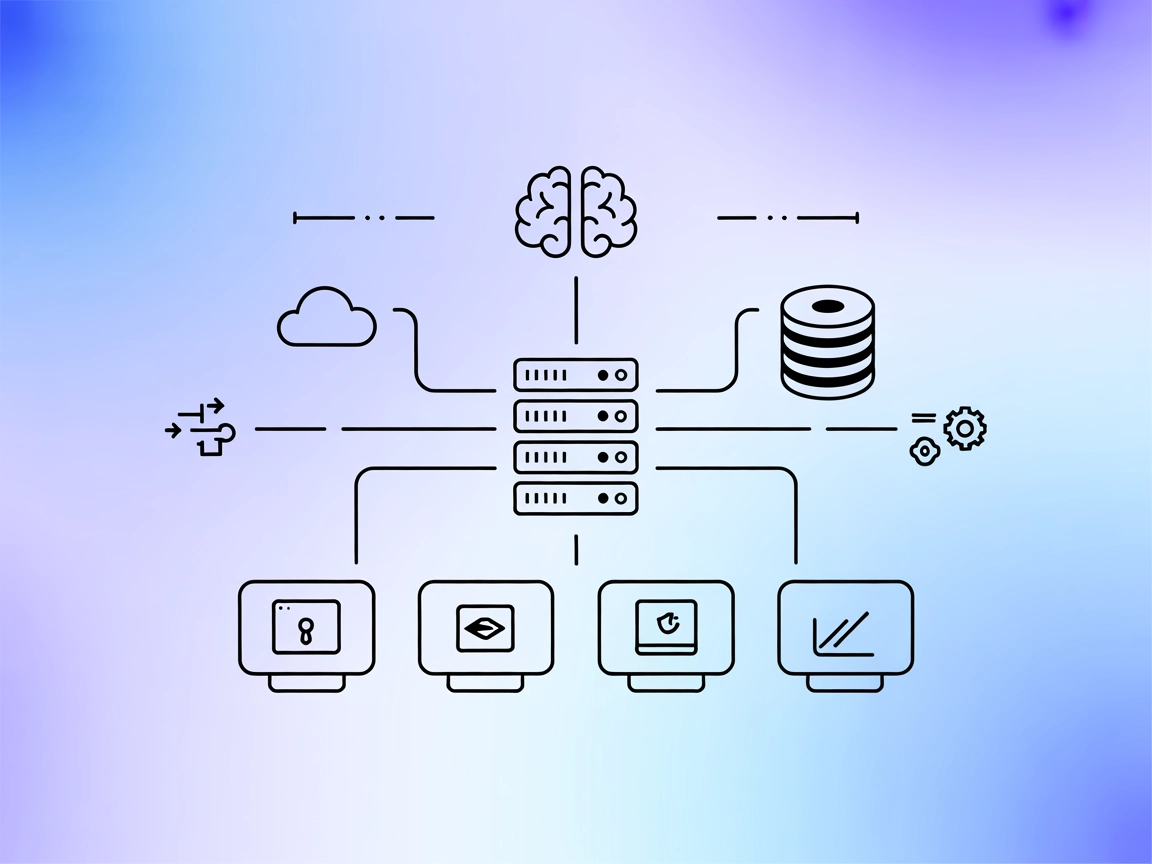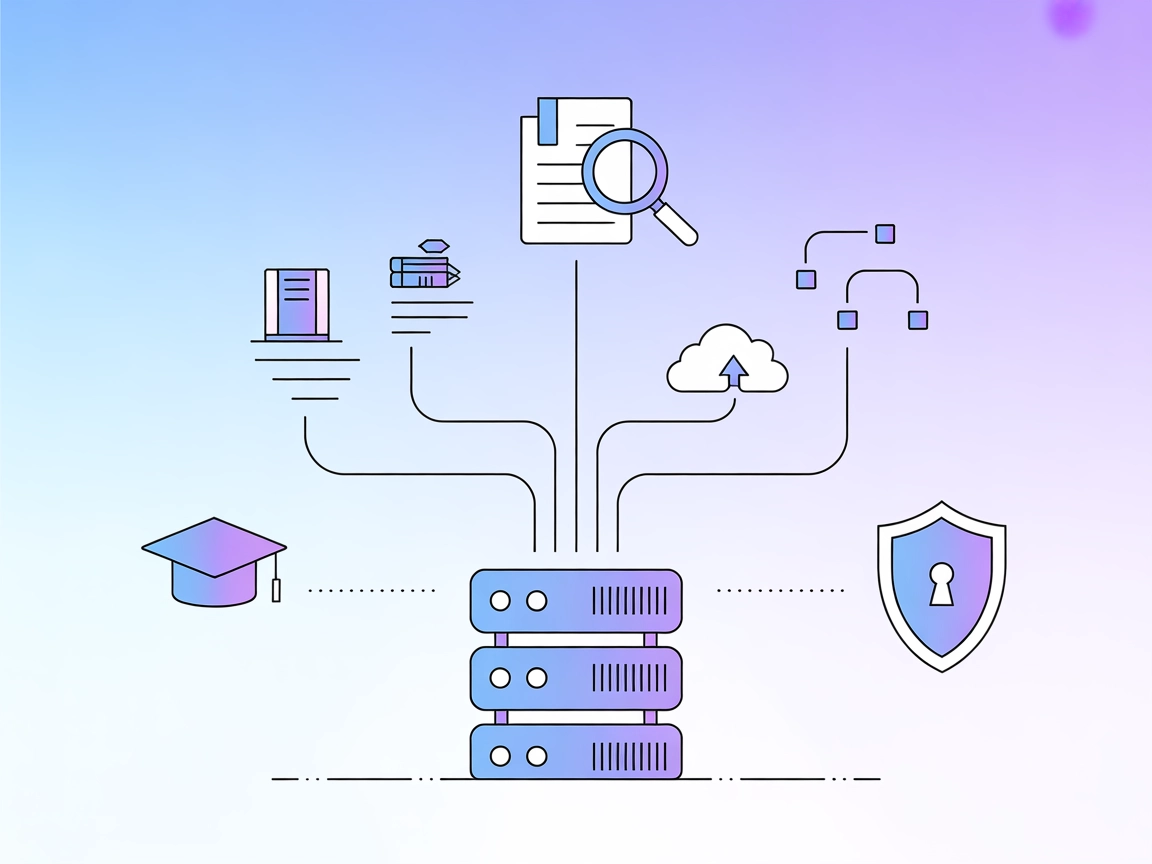
DeepL MCP Server
The DeepL MCP Server integrates advanced translation, rephrasing, and language detection into AI workflows via the DeepL API. It empowers FlowHunt and other AI ...

Automate in-depth research and reporting using the Deep Research MCP Server, designed for academic, market, and technical investigations with AI-driven synthesis of authoritative information.
FlowHunt provides an additional security layer between your internal systems and AI tools, giving you granular control over which tools are accessible from your MCP servers. MCP servers hosted in our infrastructure can be seamlessly integrated with FlowHunt's chatbot as well as popular AI platforms like ChatGPT, Claude, and various AI editors.
The Deep Research MCP Server is designed to facilitate comprehensive research on complex topics by leveraging AI capabilities to streamline the research process. Acting as a bridge between AI assistants and external data sources, it automates the exploration of research questions, the identification of key concepts, and the generation of structured, well-cited reports. The server integrates web search, content analysis, and report synthesis, assisting users in elaborating questions, generating subquestions, collecting relevant resources, and producing evidence-based conclusions. Its primary role is to empower developers and researchers to conduct in-depth investigations, surface authoritative sources, and automate the workflow of assembling and presenting research findings.
No explicit resources are described in the available documentation or repository files.
No explicit tools are listed in the available repository files, including server.py or equivalent.
mcpServers object with the following snippet:"mcpServers": {
"mcp-server-deep-research": {
"command": "uvx",
"args": [
"--directory",
"/path/to/mcp-server-deep-research",
"run",
"mcp-server-deep-research"
]
}
}
python setup.py
~/Library/Application Support/Claude/claude_desktop_config.json%APPDATA%/Claude/claude_desktop_config.jsonmcpServers configuration as follows:"mcpServers": {
"mcp-server-deep-research": {
"command": "uvx",
"args": [
"--directory",
"/path/to/mcp-server-deep-research",
"run",
"mcp-server-deep-research"
]
}
}
deep-research prompt template to begin."mcpServers": {
"mcp-server-deep-research": {
"command": "uvx",
"args": [
"--directory",
"/path/to/mcp-server-deep-research",
"run",
"mcp-server-deep-research"
]
}
}
"mcpServers": {
"mcp-server-deep-research": {
"command": "uvx",
"args": [
"--directory",
"/path/to/mcp-server-deep-research",
"run",
"mcp-server-deep-research"
]
}
}
To secure API keys, use environment variables in your configuration. Example:
"mcpServers": {
"mcp-server-deep-research": {
"command": "uvx",
"args": [
"--directory",
"/path/to/mcp-server-deep-research",
"run",
"mcp-server-deep-research"
],
"env": {
"API_KEY": "${API_KEY}"
},
"inputs": {
"api_key": "${API_KEY}"
}
}
}
Using MCP in FlowHunt
To integrate MCP servers into your FlowHunt workflow, start by adding the MCP component to your flow and connecting it to your AI agent:

Click on the MCP component to open the configuration panel. In the system MCP configuration section, insert your MCP server details using this JSON format:
{
"mcp-server-deep-research": {
"transport": "streamable_http",
"url": "https://yourmcpserver.example/pathtothemcp/url"
}
}
Once configured, the AI agent is now able to use this MCP as a tool with access to all its functions and capabilities. Remember to change “mcp-server-deep-research” to whatever the actual name of your MCP server is and replace the URL with your own MCP server URL.
| Section | Availability | Details/Notes |
|---|---|---|
| Overview | ✅ | Description found in README |
| List of Prompts | ✅ | “deep-research” prompt explicitly listed |
| List of Resources | ⛔ | No explicit resource definitions found |
| List of Tools | ⛔ | No explicit tool definitions in code or README |
| Securing API Keys | ✅ | Example configuration with env/inputs found |
| Sampling Support (less important in evaluation) | ⛔ | No mention of sampling support |
This MCP server provides clear documentation, a well-described workflow, and prompt templates but lacks explicit details on resources, tools, or advanced MCP features such as roots and sampling. The absence of detailed API or tool listings limits its flexibility for some advanced scenarios. Overall, it is practical for structured research workflows but less suited for highly customized integrations.
| Has a LICENSE | ✅ (MIT) |
|---|---|
| Has at least one tool | ⛔ |
| Number of Forks | 13 |
| Number of Stars | 119 |
The Deep Research MCP Server is an AI-powered tool for automating comprehensive research workflows. It assists in elaborating questions, generating subquestions, performing web searches, analyzing content, and synthesizing well-cited reports, ideal for academic, market, and technical research.
Deep Research MCP Server is suited for academic research assistance, market or trend analysis, technical topic summarization, content creation support, and decision support—helping surface key concepts, authoritative sources, and evidence-based conclusions.
Setup involves adding the server to your preferred client’s configuration as an MCP server using uvx, specifying the command, directory, and arguments. Detailed setup instructions are provided for Windsurf, Claude Desktop, Cursor, and Cline clients.
Use environment variables in your MCP server configuration to securely store sensitive data like API keys. Reference your environment variables in both the 'env' and 'inputs' sections of your JSON configuration.
It includes a 'deep-research' prompt tailored for structured, comprehensive research, but the documentation does not list specific tools or resources within the server.
Add the MCP component to your FlowHunt flow, open its configuration, and insert the Deep Research MCP Server’s details in the system MCP configuration section. This enables your AI agent to utilize its research and reporting capabilities.
Integrate Deep Research MCP Server with FlowHunt to streamline complex investigations, generate structured reports, and collect authoritative sources with AI-powered automation.

The DeepL MCP Server integrates advanced translation, rephrasing, and language detection into AI workflows via the DeepL API. It empowers FlowHunt and other AI ...

Deepseek Thinker MCP Server integrates Deepseek model reasoning into MCP-enabled AI clients like Claude Desktop, providing advanced chain-of-thought outputs for...

The Scholarly MCP Server empowers AI agents with direct access to scholarly article search and academic metadata retrieval, enhancing research, education, and f...
Cookie Consent
We use cookies to enhance your browsing experience and analyze our traffic. See our privacy policy.